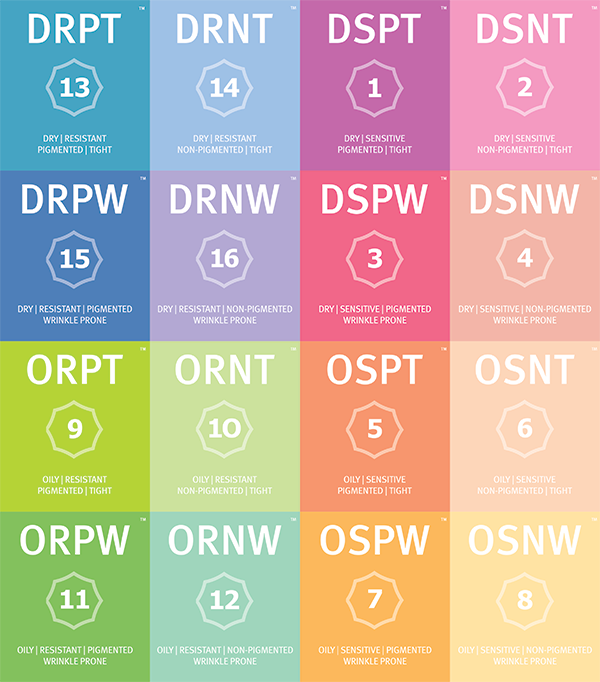Does the Moisturizer You Use Matter?

Yes! Your moisturizer can dramatically affect the efficacy and side effects of the other products in your regimen. Plus, if you struggle with dry or irritated skin, finding the right moisturizer is an essential step to getting smoother, more comfortable skin. For these reasons, it is so important that you find the right moisturizer that fits your Baumann Skin Type®. Use these tips to help you choose a moisturizer for healthy, beautiful skin.
How to Choose a Moisturizer
Several factors come together to determine which moisturizers and other skin care your skin needs. Unfortunately, there is no one-size-fits-all moisturizer that will work for everybody. Asking your friends for skin care recommendations is not usually helpful, since their skin type may be very different from yours. Instead, start with these three steps to select the right moisturizer.
1. What is your Baumann Skin Type®?
Every product that you use on your skin needs to contain the proper ingredients for your Baumann Skin Type®. There are 16 Baumann Skin Types®, and you can find out which one you are by taking the questionnaire with a Skin Type Solutions physician partner.
Once you know your skin type, you can work with your doctor to start a customized skin care regimen that includes beneficial ingredients and avoids ones that could aggravate or worsen existing skin conditions.

2. Do you want to increase or decrease skin penetration of other products?
Many people do not realize that their moisturizer plays a large role in determining how well the other products in their regimen penetrate into the skin and work. This affects both efficacy and side effects. Depending on its ingredients, your moisturizer can either increase or decrease the absorption rate of other products into your skin. In some cases, you want to increase penetration, while in others, you want to decrease it.
Moisturizers can increase penetration of ingredients into the skin
For example, many expensive anti-aging ingredients have trouble getting into your skin. They are useless on the surface. Putting an occlusive moisturizer on top of an important anti-aging treatment product helps to force the that important expensive ingredient into the skin. Plus, some ingredients make the bilayer protective membrane around your skin cells more permeable, which also helps to increase penetration. Hyaluronic acid is an ingredient known to help other ingredients penetrate into the skin and it is often used as an additive in medications to increase topical drug delivery.
Occlusive ingredients create a protective seal on your skin that keeps water and important treatment products inside.
Moisturizers can decrease penetration of ingredients into the skin
In some cases, you may want to decrease penetration of products or medications to reduce side effects. For example, benzoyl peroxide can be very irritating to some skin types. Increasing the penetration of benzoyl peroxide would increase side effects. Using a barrier repair moisturizer can help reduce the penetration of benzoyl peroxide and lessen the dryness and irritations often seen with benzoyl peroxide. The same is true when you first start using retinoids. Retinoids easily penetrate into the skin and can cause irritation and redness until your skin gets used to it. In this case, less penetration is better. Using a barrier repair moisturizer before a retinoid like retinol, tretinoin, adapalene, and tazarotene can help reduce side effects. With my patients, once they adapt to the retinoids, I then have them change and apply the moisturizer on top of the retinoid instead of under it.
A good example of how moisturizing ingredients can affect the penetration of other ingredients is linoleic acid vs. oleic acid. These are both fatty acids. We always hear that barrier repair moisturizers should contain fatty acids, cholesterol, and ceramides. However, few articles discuss what that fatty acid should be. While both have hydrating abilities, linoleic acid has anti-inflammatory capabilities, while oleic acid increases the skin penetration of other ingredients. Argan oil is an example of an ingredient that is rich in linoleic acid, while olive oil is rich in oleic acid. This is why I prefer argan oil for my patients and I tell my patients not to use olive oil on their skin.
3. Which other products are you using?
As mentioned above, the combination and order of ingredients in your regimen is crucial to getting the results you’re hoping for. If your goal is to reduce wrinkles and other signs of aging, the moisturizer you choose will be different from someone whose goal is to get rid of acne and soothe dry skin.
This is why it is so important that you work with a trained Skin Type Solutions doctor who understands ingredient science and layering.
Bottom Line
The moisturizer you use absolutely does matter, and choosing the wrong one can make your skin worse than if you were to use nothing at all. Selecting the right moisturizer really depends on your skin type and which other products you are using. Get help from an STS doctor in your area who can give you the Baumann Skin Type® quiz and show you which products to use and in what order.
Follow Baumann Cosmetic Dermatology on Facebook, Instagram, and YouTube for more skin care science, news, and recommendations from Dr. Leslie Baumann. If you have specific questions about your skin, you can also contact our Miami office online or send an email to info@derm.net.
Wishing you great skin!
©2018 MetaBeauty, Inc.


